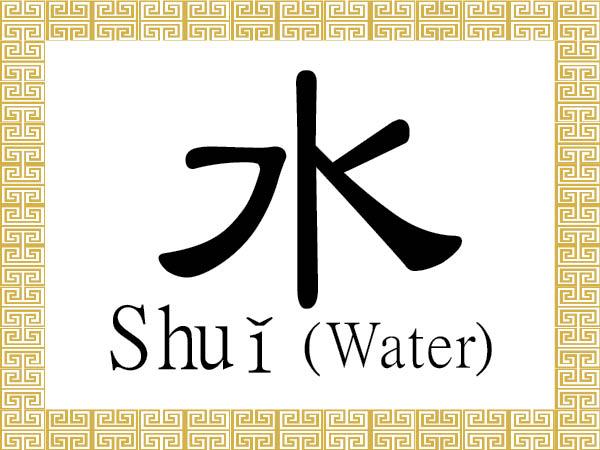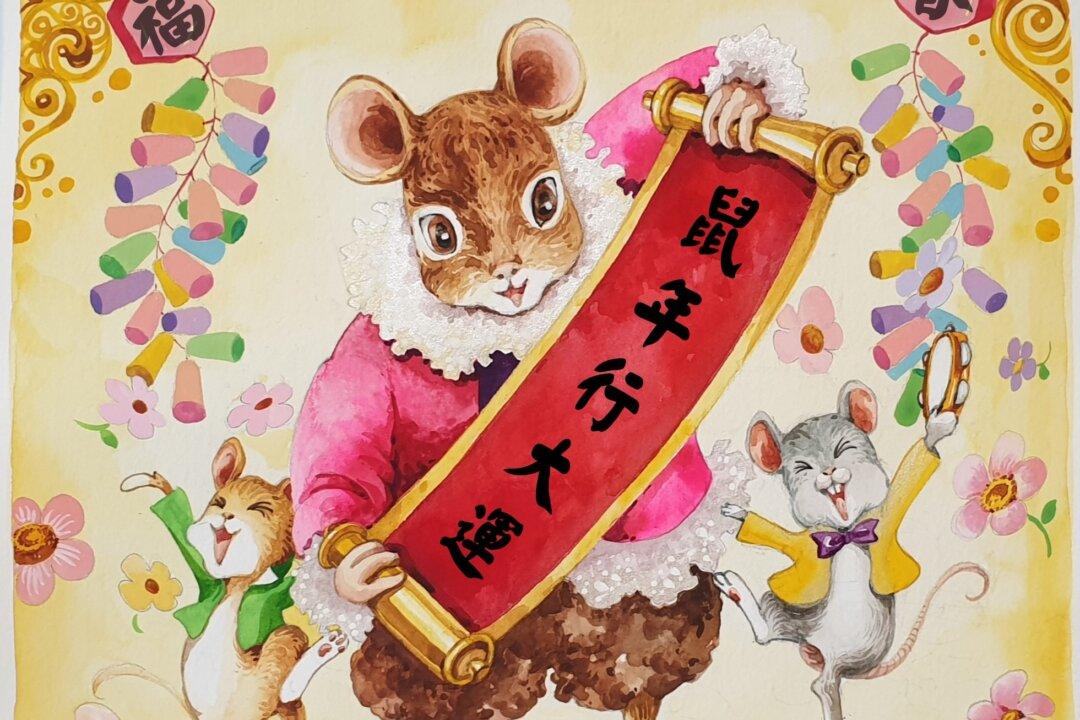The Chinese character 水 (shuǐ) refers to water, a liquid, or a fluid. It can also refer to a river, stream, or other body of water.
水 (shuǐ) is a pictograph that depicts flowing water.
As water flows, small waves of varying lengths are formed along the surface, some long, some short. Thus in the character 水 (shuǐ), the middle stroke indicates a long ripple, while the strokes on either side indicate short ripples.
Examples of terms that use 水 (shuǐ) include 水果 (shuǐ guǒ), fruit; 水晶 (shuǐ jīng), crystal; 水仙 (shuǐ xiān), narcissus, or daffodil; 水力 (shuǐ lì), water power, literally “water strength” or “water force”; 水泥 (shuǐ ní), cement, literally “water mud”; 水花 (shuǐ huā), a spray of water, literally “water flower”; and 水手 (shuǐ shǒu), a sailor, literally “water hand.”
A landscape painting is called 山水畫 (shān shuǐ huà)—a painting (畫, huà) that depicts mountains (山, shān) as well as water, such as rivers, lakes, and waterfalls.
水平 (shuǐ píng) refers to a standard or level of achievement. The character 平 (píng) has a variety of meanings, including flat, level, calm, and peaceful.
Rainwater is called 雨水 (yǔ shuǐ), where 雨 (yǔ) refers to rain. A soft drink is called 汽水 (qì shuǐ), where 汽 (qì) refers to steam or vapour.
The chemical element mercury, commonly known as quicksilver, is called 水銀 (shuǐ yín) in Chinese, literally “water silver.” This term reflects the element’s former name of “hydrargyrum,” from the Greek “hydr-” meaning water and “argyros” meaning silver.
The planet Mercury, similarly, is called 水星 (shuǐ xīng) in Chinese, literally “water star.”
心如止水 (xīn rú zhǐ shuǐ), literally “a heart (心, xīn) like still water or ’stopped' water (止水, zhǐ shuǐ),” describes a state of mind so calm that it remains serene even amid great turbulence, completely unmoved by ordinary human emotions.
The idiom 白水鑑心 (bái shuǐ jiàn xīn) expresses that white water (白水, bái shuǐ), referring to clear water, is like a mirror that can be used to reflect or examine (鑑, jiàn) one’s heart (心, xīn). It praises someone with a noble character, whose heart is as pure as bright and clean water.
水滴石穿 (shuǐ dī shí chuān) states that dripping water (水滴, shuǐ dī) can wear through (穿, chuān) stone (石, shí). The idiom conveys the principle that as long as one perseveres and continues to make effort, success will surely follow.




